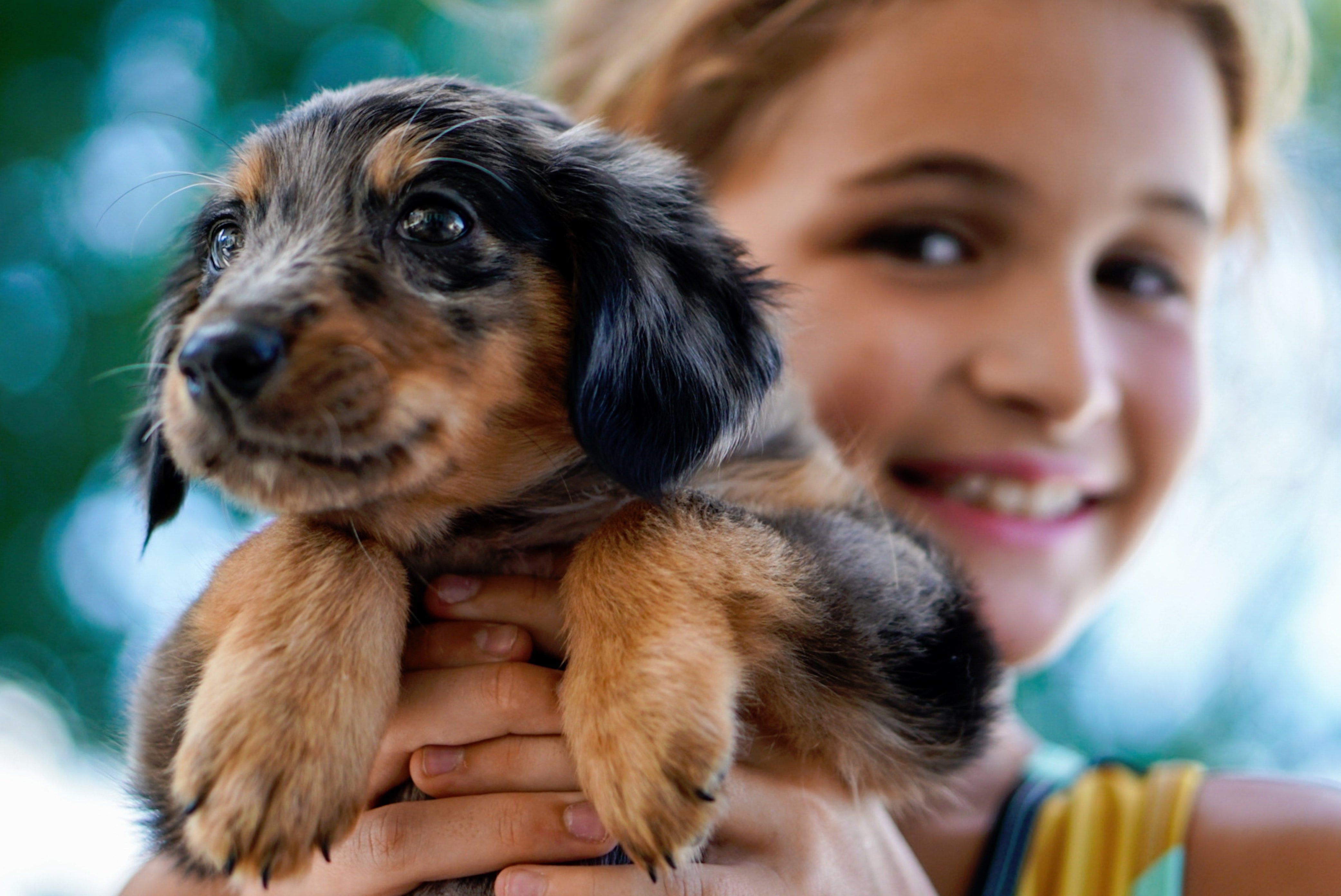Are you thinking about introducing a furry friend to your family? Congratulations! Getting a dog is a great way to grow your family and bring even more joy to your household. But it can, and most likely will be, overwhelming.
Not only does it take time for kids and pups to adjust, but it can be much more challenging if you choose a breed that doesn’t mesh well with kids. Temperament, size, and lifestyle are all factors to consider when choosing your new family member.
If you’re thinking about welcoming a pup home, it’s important to do your research about which dog breeds are best with kids.
What Are the Best Dog Breeds With Kids?

While every dog is different — even among breeds — there are certain breeds that naturally cater better to children.
Depending on your children’s ages and your family’s lifestyle, you might want a large dog with unrelenting patience or a small one with a playful, upbeat attitude. Ultimately, a trainable dog with a friendly personality and a gentle demeanor bodes best for families with kiddos.
Small Breeds:
If you’re interested in getting a smaller breed, it likely makes sense in a household with older kids who may be a little more cautious. Breed examples include:
- Pug
- French Bulldog
- Boston Terrier
- Dachshund
- Cavalier King Charles Spaniel
- Cardigan Welsh Corgi
- Yorkshire Terrier
Medium Breeds:
If you’re in search of a dog that is good with kids but may be a little bit bigger, consider the following breeds:
- Beagle
- Poodle
- Soft Coated Wheaten Terrier
- English Setter
- Bull Terrier
Large Breeds:
If you want to opt for a large dog, consider the following breeds with a generally calm temperament and kid-friendly demeanor:
- Golden Retriever
- Labrador Retriever
- Collie
- Boxer
- Irish Setter
- Spanish Mastiff
- Bernese Mountain Dog
Choosing the Right Pup For Your Family

In addition to taking breed-specific information and size into account, it’s important to take inventory of your current life situation to see what kind of pup makes sense and if you have the time to dedicate to training, grooming, and general care. For example, if you prefer a spotless home and wouldn’t be able to stand the thought of dog hair, you might reconsider getting a German shepherd or Alaskan malamute, which are both breeds known to heavily shed. If your family has an extremely active lifestyle and you want your pup to come along, a French bulldog or pug — both known to be more low-key — might not be the best option.
It’s also important to consider whether you should get a puppy or an older rescue dog.
Puppies
There are many benefits to getting a puppy. You know them from the beginning and get to handle all of their training since they haven’t been in any other household. Your family will really be the only one they have ever known. However, puppies are a lot of work. You have to constantly pay attention to them and monitor their behavior. On top of kids, that can be very overwhelming.
Make sure you’re at a point in your life where you can spend a lot of time at home. If your kids are old enough, try involving them in the training process. If kids feel accountable and trusted for the puppy’s well-being, raising little Fido will feel more like a team effort and the burden won’t fall solely on you.
Older Dogs & Rescues
Adopting a rescue dog can be extremely gratifying. Welcoming an older dog who is already potty trained might be best for busier families that don’t have a lot of time to dedicate to rigorous training. However, it’s important to really understand your dog’s personality before making anything permanent. Many adoption agencies will be upfront about whether or not a dog is good with kids, other pets, or is housebroken, but it’s important to get as many “meet and greets” as possible with your dog before you bring him home. It could also be beneficial to foster a dog first and see how your kids react to having a pooch around.
No matter what pup you choose to welcome into your family, it’s important to set expectations with your kids to understand how to safely play with the dog and who is responsible for what. If you do your research beforehand, you’re sure to set your dog up for a long, happy and healthy life.
Sources:













